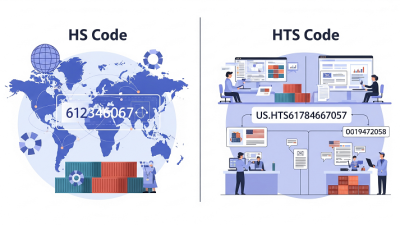
Import insurance (often called marine cargo insurance) is your safety net when goods move across borders by ocean freight, air freight, truck, or rail. From theft and rough handling to storms and General Average events, the right policy can save your margin—and your reputation.
What Is Import Insurance?
Import insurance covers physical loss or damage to cargo during transit. Unlike carrier liability (which is limited by convention and value per kilo), cargo insurance is designed to make you whole up to the insured value.
Common cover types
- All-Risk (ICC A): Broadest coverage for new, properly packed goods.
- Named Perils (ICC B/C): Covers specific risks (e.g., fire, stranding); lower premium, narrower scope.
- Warehouse-to-Warehouse: Door-to-door protection across multiple legs.
- Contingency Insurance: Protects sellers when buyers arrange insurance but fail to do so.
- Project Cargo / High-Value Cargo: Tailored for heavy machinery or oversize shipments.
Why You Need It (Even If the Carrier Is at Fault)
- Low carrier liability limits: Air (Montreal Convention), ocean (Hague-Visby/COGSA) pay only a fraction of the loss.
- General Average: In emergencies, all cargo owners must share the vessel’s losses; without insurance, your cargo can be held until you post a bond.
- Complex multimodal routes: More hand-offs mean more risk.
How Incoterms Affect Who Buys Insurance
- CIF & CIP: Seller must provide insurance (CIP requires higher minimum cover than CIF).
- EXW, FCA, FOB: Buyer typically insures.
- DDP, DAP: Depends on your negotiated risk transfer.
Tip: Align Incoterms with your control over the shipment and appetite for risk.
What Does Import Insurance Cost?
Premiums usually range from 0.05%–0.6% of insured value, influenced by:
- Product type (e.g., electronics vs. furniture)
- Packing method & cargo packaging quality
- Route and season (piracy, storm risk)
- Claims history and deductible
Insured value formula (typical):
CIF value + 10% (or Cost + Freight + Insurance + 10%) to cover expected profit and incidental expenses.
What’s Typically Excluded?
- Inherent vice (e.g., product spoiling due to its nature)
- Ordinary leakage/weight loss
- Insufficient or defective packaging
- Delay (without physical damage)
- War/strikes (unless War & SRCC extensions added)
- Willful misconduct
Claims: How to Get Paid Fast
- Inspect & mitigate further damage immediately.
- Note exceptions on delivery receipt (POD).
- Collect documents: Policy/certificate, commercial invoice, packing list, B/L or AWB, survey report, photos, tally records.
- Notify insurer promptly (many policies have strict time limits).
- Cooperate with surveyor and salvage instructions.
Best Practices to Lower Risk and Premiums
- Choose sturdy packaging: Drop-tests, moisture barriers, and proper palletization (ISPM-15 for wood).
- Use data loggers for temperature/shock on sensitive goods.
- Seal integrity & chain of custody: Record seal numbers, use tamper-evident devices.
- Vet partners: Reputable freight forwarders, NVOCCs, and 3PLs.
- Route planning: Avoid transshipment hot spots when possible.
- Annual open cargo policy if you ship often; single-shipment policy for occasional imports.
Import Insurance vs. Carrier Liability (At a Glance)
| Aspect | Carrier Liability | Import (Cargo) Insurance |
|---|---|---|
| Payout Basis | Limited per kg/package | Up to insured value |
| Proof Burden | Often on shipper | Typically on insurer once covered peril proven |
| General Average | You still pay a share | Insurer covers GA + security |
| Scope | Narrow | All-Risk or Named Perils |
| Cost | Included | Extra premium (small %) |
Example Scenarios
- Electronics via air: All-Risk + data-logger evidence; higher theft risk → insure to CIF+10%.
- Wood furniture via ocean (LCL): Warehouse-to-warehouse All-Risk; extra packing; consider moisture control.
- Industrial machinery (project cargo): Special handling endorsement; survey at load/discharge; higher deductible to reduce premium.
Frequently Asked Questions
Do I need import insurance if my supplier ships CIF?
CIF includes insurance, but coverage is often minimal. Ask for policy details or upgrade to CIP-level breadth.
Can I insure second-hand goods?
Yes, but often under Named Perils with specific conditions and surveys.
Is theft covered?
Under All-Risk, yes—provided there’s evidence and proper packing/sealing.
What if my shipment is delayed but not damaged?
Pure delay isn’t covered unless you’ve added specific trade disruption endorsements.
We work with trusted global freight forwarders. Get a quote to ship your product abroad!
Contact us now to get connected or receive a quote within 24 hours! Visit our products page for all our products.



